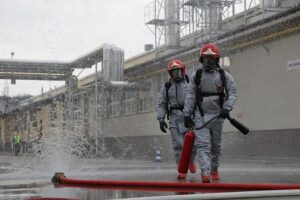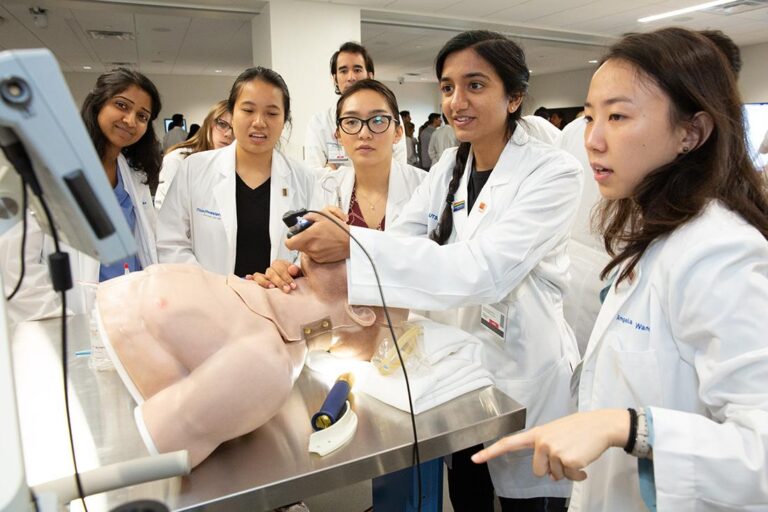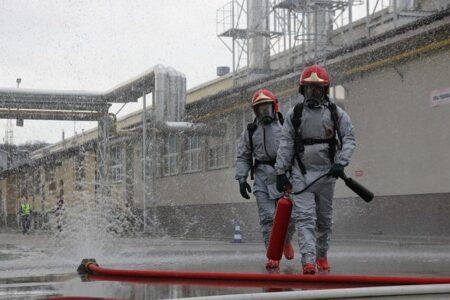UT Southwestern Medical CenterŌĆÖs Simulation Hub: Pioneering Next-Generation Medical Training
Transforming Clinical Education Through Immersive Simulation
The University of Texas Southwestern Medical Center has launched an innovative Simulation Hub, a premier facility engineered to elevate medical training and patient care standards. This advanced center integrates cutting-edge technology with realistic clinical scenarios, offering healthcare practitioners a dynamic platform to sharpen their skills, enhance critical thinking, and foster effective teamworkŌĆöall within a safe, controlled setting that eliminates risk to patients. As medical education evolves toward experiential learning, UT SouthwesternŌĆÖs Simulation Hub is setting a new benchmark for immersive, hands-on training in the region.
Core Features Driving Excellence in Medical Training
The Simulation Hub at UT Southwestern has quickly become an essential resource for clinical education, utilizing sophisticated tools and lifelike scenarios to bridge the gap between classroom knowledge and real-world practice. Trainees engage in a variety of exercises, from acute emergency response simulations to intricate surgical rehearsals, all designed to build confidence and competence without compromising patient safety.
- Advanced mannequins capable of replicating a wide range of medical conditions
- Virtual reality platforms delivering fully immersive clinical environments
- Collaborative, interdisciplinary training sessions promoting teamwork
- Guided debriefings led by experts to encourage reflective learning and continuous improvement
| Training Program | Number of Participants | Simulation Hours Logged |
|---|---|---|
| Emergency Medicine Residency | Over 150 Residents | 1,200 |
| Surgical Skills Development | 100+ Medical Students | 900 |
| Interprofessional Team Training | 70+ Multidisciplinary Teams | 600 |
By merging innovative simulation technologies with comprehensive curricula, the center not only enhances technical proficiency but also nurtures critical thinking and collaborative skills, ultimately contributing to superior patient care outcomes at UT Southwestern Medical Center.
Advanced Technologies Creating Hyper-Realistic Patient Care Experiences
UT SouthwesternŌĆÖs Simulation Hub harnesses the latest technological advancements to replicate the complexities of real-world patient care. AI-powered mannequins respond dynamically to interventions, providing trainees with authentic feedback and challenges that mirror clinical unpredictability. This immersive approach sharpens diagnostic acumen and decision-making under pressure, essential for improving patient safety and treatment efficacy.
Technological Innovations Enhancing Training Realism
- High-fidelity patient simulators that mimic vital signs such as respiration, cardiac rhythms, and speech
- Virtual reality modules recreating emergency room and surgical settings with vivid audiovisual detail
- Wearable biometric devices delivering instantaneous performance metrics to trainees and instructors
| Technology | Primary Advantage | Typical Use Case |
|---|---|---|
| AI-Enhanced Simulators | Real-time adaptive patient responses | Critical care and trauma management training |
| Virtual Reality Systems | Fully immersive clinical environments | Complex surgical procedure rehearsals |
| Wearable Sensor Technology | Immediate feedback on trainee performance | Skill assessment and improvement |
Fostering Interdisciplinary Collaboration Through Team-Based Learning
The Simulation Hub emphasizes collaborative learning by bringing together healthcare professionals from various disciplines to tackle realistic patient scenarios. This approach strengthens communication, clarifies roles, and enhances coordinated decision-making, which are critical components in delivering high-quality care. Participants include students, residents, and practicing clinicians from specialties such as surgery, nursing, emergency medicine, and anesthesiology.
Key Collaborative Training Initiatives
- Interprofessional Workshops: Designed to define roles and responsibilities within healthcare teams
- Video-Assisted Debriefings: Providing visual feedback to encourage self-reflection and learning
- Scenario-Based Drills: Focused on teamwork, problem-solving, and patient safety under pressure
| Program Title | Focus Area | Primary Outcome |
|---|---|---|
| TeamSTEPPS Communication Training | Cross-specialty Collaboration | Improved team communication and efficiency |
| Critical Care Simulation | Intensive Care and Nursing | Enhanced crisis response capabilities |
| Trauma Response Exercises | Emergency Medicine and Surgery | Better coordinated emergency interventions |
Expanding Simulation Access: A Pathway to Superior Clinical Outcomes
Medical experts and educators advocate for wider integration of simulation-based training across healthcare institutions. Providing broader access to high-fidelity simulation tools enables practitioners to refine essential skills in a risk-free environment, leading to measurable improvements in patient safety and a reduction in clinical errors. Recent data reveals that healthcare systems with extensive simulation programs report up to a 30% decrease in procedural complications.
Benefits of Widespread Simulation Training
- Improved Clinical Proficiency: Repetitive practice in simulated settings enhances both technical and interpersonal skills.
- Strengthened Interdisciplinary Cooperation: Simulation fosters effective communication and teamwork among diverse healthcare providers.
- Timely Feedback and Skill Refinement: Immediate debriefings help learners quickly identify and correct errors.
| Simulation Access Level | Impact on Clinical Outcomes | Adoption Percentage |
|---|---|---|
| Restricted Access | Moderate improvement in outcomes | 40% |
| Widespread Access | Significant enhancement in patient safety | 75% |
| Fully Integrated Curriculum | Maximum clinical performance gains | 90% |
Conclusion: Shaping the Future of Medical Education and Patient Care
As UT Southwestern Medical Center continues to push the boundaries of medical education, its Simulation Hub remains a vital asset in preparing healthcare professionals for the complexities of modern medicine. By offering a sophisticated, hands-on training environment, the center empowers clinicians to refine their expertise and improve patient outcomes in real clinical settings. With ongoing technological advancements and a steadfast commitment to excellence, the Simulation Hub is set to influence the future landscape of healthcare education both locally and nationally.







